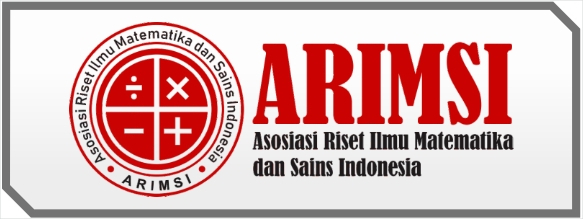Sang Al-Qur’an Berjalan KH. Muntaha Al-Hafidz Wonosobo: Sebuah Kontinuitas, Penghayatan dan Esensi yang Diwujudkan
DOI:
https://doi.org/10.55606/sscj-amik.v1i3.1300Abstract
Artikel ini bertujuan mengeksplorasi Sang Al-Qur’an berjalan KH. Muntaha Al-Hafidz Wonosobo: sebuah kontinuitas, penghayatan dan esensi yang diwujudkan, secara khusus mengkaji pemikiran, dan aktualisasi dalam berinteraksi dengan Al-Qur'an. Tulisan ini termasuk penelitian tokoh dengan jenis kualitatif bertujuan mencapai suatu pemahaman ketokohan seseorang dalam komunitas santri dan masyarakat dalam bidang mendalami dan mempraktekkan Al-Qur’an. Proses pengumpulan data melalui dokumentasi, dan catatan-catatan perjalanan hidup sang tokoh sewaktu masih hidup kemudian dianalisis content. Penelitian menunjukkan: bahwa Al-Qur’an berjalan merupakan figur yang dalam sendi kehidupannya dicurahkan untuk mendalami serta mempraktekkan Al-Qur’an. Nabi Muhammad Saw adalah Al-Qur’an berjalan yang kemudian diwariskan kepada ulama Qur’an. KH. Muntaha merupakan sosok ulama yang mendalami dan mempraktekkan Qur’an dalam realitas hidupnya. Penghayatan Al-Qur’an yang mendalam didialogkan dengan kondisi zaman sehingga bermanfaat bagi sosial-keumatan. Figur ini menjadi guru riel bagi para santri dan masyarakat semasa hidupnya, serta menjadi guru imajiner bagi yang tidak menjumpainya secara fisik. Implikasi penellitian, pengalaman naratif membawa tatanan spiritual pada masalah pendalaman dan praktek al-Qur’an yang diwakili oleh sifat pengetahuan dan sakral yang tidak terpisahkan. Jalinan narasi pengalaman dengan perspektif teoretis memunculkan pemahaman terhadap hakikat hafalan untuk perwujudan
References
Abidin MZ, Z. (2021). Pengembangan Pembelajaran Tahfidz Al-Qur’an Klaksikal Di Pondok Pesantren Al Ittifaqiah. Jurnal At-Tahfizh, 2(2), 83–87. https://ejournal.iaiqi.ac.id/index.php/attahfidz/article/view/46/39
Abuznaid, S. A. (2016). Organizational Behavior from an Islamic Perspective. Journal of Islamic Studies and Culture, 4(2), 109–121. https://doi.org/10.15640/jisc.v4n2a12
Akaslan, Y. (2018). The education of Qur’ān recitation (Qirā’āt) in Turkey. Cumhuriyet Ilahiyat Dergisi, 22(7), 1081–1107. https://doi.org/10.18505/cuid.439689
Al-Ma’mun, H. (2022). Prophetic Philosophy Muhammad Saw dalam Al-Qur’an. Jurnal Al-Fanar, 5(1), 71–83. https://doi.org/10.33511/alfanar.v5n1.71-83
Al-Qarni, ’A’idh ’Abdullah. (2007). Al-Qur’an Berjalan : Potret Keagungan Manusia Agung (A. Badruzzaman (ed.)). Jakarta : Sahara Publishers.
Ali, M. Q., Al-Azhari, M. A. J., & Imran, M. (2020). An analysis of the teachings of muhammad (Saw) to conceptualize national professional standards for teachers: A contemporary issue. Journal of Islamic Thought and Civilization, 10(1), 348–363. https://doi.org/10.32350/jitc.101.19
Asmani, J. M. (2020). Al-Quran Berjalan : Meneladani Nabi Muhammad, Ulama dan Santri. Yogyakarta : Aswaja Pressindo.
Batrov, R. G. (2021). “A Good Example”: on the Theological Interpretation of the Verse 21 of Surah Al-Ahzab in Classical Sunnite Tafsir Tradition. Islam in the Modern World, 17(1), 77–88. https://doi.org/10.22311/2074-1529-2021-17-1-77-88
Budi. (2022). “Biografi KH. Muntaha al-Hafizh.” Laduni.Id. https://www.laduni.id/
Chittick, W. C. (2022). 3 Spiritual Psychology. In Divine Love (p. 105). Yale University Press, New Haven. https://doi.org/10.12987/9780300195101-007
Clement, S., & Bollinger, R. (2017). Accelerating Progress: A New Era of Research on Character Development. Journal of Youth and Adolescence, 46(6), 1240–1245. https://doi.org/10.1007/s10964-017-0681-9
Darda, A., & Uddin, R. (2019). Self Regulation Student of Memorizing Al-Qur’an in Ma’had Al-Muqoddasah Litahfidzil Qur’an Nglumpang Mlarak Ponorogo 2018-2019. Educan : Jurnal Pendidikan Islam, 3(1), 1–20. https://doi.org/10.21111/educan.v3i1.3558
Dogan, R. (2015). Contributing to World Peace - An Examination of the Life of Prophet Muhammad as a Leader. Sociology and Anthropology, 3(1), 37–44. https://doi.org/10.13189/sa.2015.030105
Fouly, N. (2016). Taha Hussein and Abbas Mahmud al-Aqqad on the Greek Philosophy: A Comparative Study. DINIKA : Academic Journal of Islamic Studies, 1(3), 350–386. https://doi.org/10.22515/dinika.v1i3.69
Hamdeh, E. (2015). The Walking Qur’an: Islamic Education, Embodied Knowledge, and History in West Africa By Rudolph Ware III (Chapel Hill: University of North Carolina Press, 2014. 330 pages). American Journal of Islam and Society, 32(1), 120–123. https://doi.org/10.35632/ajis.v32i1.961
Hardaker, G., & Sabki, A. (2016). The nature of memorisation for embodiment. Journal for Multicultural Education, 10(1), 87–98. https://doi.org/10.1108/JME-01-2016-0019
Haron, M. (2016). The walking Qur’an: islamic education, embodied knowledge, and history in West Africa. African Historical Review, 48(1), 178–181. https://doi.org/10.1080/17532523.2016.1227605
Hisyam, I. (2017). Sirah Nabawiyah. Beirut : Dar el-fikr.
Huda, S. (2021). Ulama Pewaris Para Nabi: Kajian Awal Tipologi Ulama Kontemporer. Al-Hikmah, 7(2), 155–171. https://doi.org/10.30651/ah.v7i2.10674
Ibnu Katsir. (2017). Tafsir Ibnu Katsir. Jakarta : Pustaka Imam Asy-Syafi.
Ibrahim, E. E. M., & Zein, I. M. (2014). Tawhid and relevantisation of Qur’anic exegesis to Muslim political life: an exegetical interpretation of Al-Trabi’s tafsir. Revelation and Science, 4(2), 23–28. http://irep.iium.edu.my/id/eprint/42289
Jakfar, M., Haris, A. R., & Zulfikar, F. (2020). Lembaga tahfizh Al-Qur’an dalam sejarah pendidikan Islam. Jurnal Pendidikan Luar Sekolah, 14(1), 1–12. https://doi.org/10.32832/jpls.v14i1.3320
Jaya, S. A. F. (2020). Al-Qur’an dan Hadis sebagai Sumber Hukum Islam. Jurnal Indo-Islamika, 9(2), 204–216. https://doi.org/10.15408/idi.v9i2.17542
Kamal, F., Mas’ud, A., & Uhbiyati, N. (2022). Biografi KH. Muntaha (1912-2004) Sebagai Pemimpin Pondok Pesantren Al-Asy’Ariyyah Wonosobo. Jurnal Ilmiah Ar-Risalah: Media Ke-Islaman, Pendidikan Dan Hukum Islam, 20(1), 133–153. https://ejournal.iaiibrahimy.ac.id/index.php/arrisalah/article/view/1331
Kementerian Agama. (2020). Al-Qur’an dan Terjemahannya. Jakarta: Lajnah Pentashihan Mushaf Al-Qur’an.
Khaja, M. (2023). Why would Allah send Muhammad as the “walking Qur’an” in which interpretations of it are based on the Prophet’s life when the Qur’an is enough as a guidance to all humanity? Quora. https://www.quora.com/
Khaleel, A. Q., Abdul-Ghafour, M., Awal, N. M., Zainudin, I. S., & Aladdin, A. (2019). The Interplay of Qur’ānic Synonymy and Polysemy with Special Reference to Al-asfār and Al-kutub (the Books) and their English Translations. 3L: Language, Linguistics, Literature, 25(1), 129–143. https://doi.org/10.17576/3L-2019-2501-10
Li, M. (2020). A Systematic Review of the Research on Chinese Character Teaching and Learning. Frontiers of Education in China, 15(1), 39–72. https://doi.org/10.1007/s11516-020-0003-y
Littman-Ovadia, H., Dubreuil, P., Meyers, M. C., & Freidlin, P. (2021). Editorial: VIA Character Strengths: Theory, Research and Practice. Frontiers in Psychology, 12(1), 1–5. https://doi.org/10.3389/fpsyg.2021.653941
Mandiro, A. (2022). Problematika Ulama. Jurnal Ilmiah Spiritualis: Jurnal Pemikiran Islam Dan Tasawuf, 7(2), 139–154. https://doi.org/10.53429/spiritualis.v7i2.349
Manik, W. (2020). Guru di Zaman Nabi Muhammad : Figur & Karakteristik. WARAQAT : Jurnal Ilmu-Ilmu Keislaman, 5(1), 19–49. https://doi.org/10.51590/waraqat.v5i1.94
Musling, M. N., & Ismail, M. Z. (2021). Universal Social Moral Values in Sh?hid of Quranic Syntax: Nominal and Verbal Sentences. International Journal of Academic Research in Business and Social Sciences, 11(12), 738–756. https://doi.org/10.6007/ijarbss/v11-i12/11816
Robinson, D. (2015). West African Islamic States and “Antislavery” in The Walking Qur’an. Journal of Africana Religions, 3(2), 177–183. https://doi.org/10.5325/jafrireli.3.2.0177
Sabri, A. (2020). Trends of “Tahfidz House” Program in Early Childhood Education. JPUD - Jurnal Pendidikan Usia Dini, 14(1), 78–93. https://doi.org/10.21009/jpud.141.06
Salvatore, A. (2019). Seeularity through a “Soft Distinction” in the Islamic Ecumene? Adab as a Counterpoint to Shari’a. Historical Social Research, 44(3), 35–51. https://doi.org/10.12759/hsr.44.2019.3.35-51
Sarahneh, S. H. (2021). Connecting to the religious heritage in Amal Donqul’s poetry collection Al’ahd Alati. مجلة العلوم الإنسانية و الإجتماعية, 4(10), 133–120. https://doi.org/10.26389/ajsrp.s020720
Sari, Y. Y., & Naufal, E. (2021). Workshop Metode Menghapal Al Quran el Talaqqi qu bagi Guru Pendidikan Anak Usia Dini. Jurnal SOLMA, 10(1s), 266–279. https://doi.org/10.22236/solma.v10i1s.5162
Seesemann, R. (2015). Embodied Knowledge and The Walking Qur’an: Lessons for the Study of Islam and Africa. Journal of Africana Religions, 3(2), 201–209. https://doi.org/10.5325/jafrireli.3.2.0201
Sinaga, A. I., Ananda, R., & Putri, H. A. (2020). The Role of the Manager of the Qur’an House ‘Aisyah Radhiyallahu‘ Anha in Applying the Living Qur’an Method in Bangun Sari Village, Tanjung Morawa District, Deli Serdang Regency North Sumatra. Budapest International Research and Critics Institute (BIRCI-Journal): Humanities and Social Sciences, 3(3), 1718–1723. https://doi.org/10.33258/birci.v3i3.1103
Sultan, S. N. (2007). The Qur’an and Sayings of Prophet Muhammad: Selections Annotated & Explained. Woodstock, VT, United States: SkyLight Paths Publishing.
Syarifi, M. M. A. (2021). “KH Muntaha, Ulama Pecinta Al-Quran Sepanjang Masa.” Besongo Online. https://be-songo.or.id/
Tim Menyansoft. (2012). “KH. Muntaha Al-Hafizh, Pecinta Al-Qur’an Sepanjang Hayat.” Sarkub Media. https://www.sarkub.com/
Ulummudin, U. (2020). Memahami Hadis-hadis Keutamaan Menghafal al-Qur’an dan Kaitannya dengan Program Hafiz Indonesia di RCTI (Aplikasi Hermeneutika Nasr Hamid Abu Zaid). AL QUDS : Jurnal Studi Alquran Dan Hadis, 4(1), 57–76. https://doi.org/10.29240/alquds.v4i1.1103
Vespestad, M. K., & Clancy, A. (2021). Exploring the use of content analysis methodology in consumer research. Journal of Retailing and Consumer Services, 59(1), 1–9. https://doi.org/10.1016/j.jretconser.2020.102427
Ware, R. T. (2014). The Walking Qur’an: Islamic Education, Embodied Knowledge, and History in West Africa. Chapel Hill: University of North Carolina Press.
Wijaya, A. (2016). Sejarah Kenabian dalam Perspektif Tafsir Nuzuli Muhammad Izzat Darwazah. Bandung : Mizan.
Wright, Z. (2015). Salafi theology and Islamic orthodoxy in West Africa. Comparative Studies of South Asia, Africa and the Middle East, 35(3), 647–656. https://doi.org/10.1215/1089201X-3426493
Zaid, F. M. A. (2008). Jadilah Al Quran Berjalan di Bumi (W. Abdurrahim & M. Anas (eds.)). Jakarta : Maghfirah Pustaka.






















